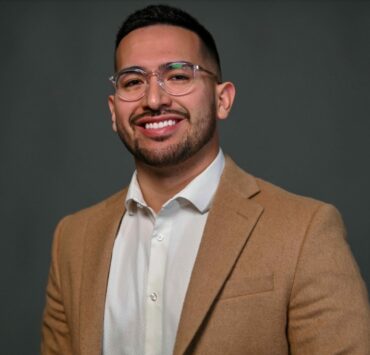|
Getting your Trinity Audio player ready...
|
Colonel Lisa Carrington Firmin was the highest-ranking Latina in the US Air Force at the time of her retirement in 2010. Twelve years later, she’s releasing a book that sheds light on the military sexual trauma (MST) that she and others have experienced while serving their country.
Stories from the Front: Pain, Betrayal, and Resilience on the MST Battlefield includes testimony from fourteen veterans and active-duty service members who survived traumatic events, ranging from Vietnam to the present era. In addition to MST, the stories in the book include incidents of discrimination based on race/ethnicity, gender, and sexual orientation. Carrington Firmin hopes that the work will make an impact in the military community and beyond.
“It may have taken me a long time to speak up, but I’m doing it now, and the world is about to hear the realities of what can accompany our service,” she explains. “If I can help one person, it will be worth it.”
Carrington Firmin, now University of Texas San Antonio’s Military Liaison, is drawing on the same motivation that led her to enlist in 1980. “I love my country and I want it to be better,” she says, adding that her desire is for the book to be a resource leaders can use to make service safe and “level the playing field” so all Americans can pursue equal opportunities regardless of race, gender, religion, or sexual orientation.
The retired colonel is second-generation military. Her father served in both the US Navy and the Air Force, the latter for more than twenty years. When he was a master sergeant in the Air Force at the end of his career, he suffered a massive stroke, and Carrington Firmin saw the true nature of camaraderie. “The military circled the wagons to take care of one of their own,” she recalls.
“It may have taken me a long time to speak up, but I’m doing it now, and the world is about to hear the realities of what can accompany our service.”
Lisa Carrington Firmin
After she studied journalism in college, Carrington Firmin earned a commission in the Air Force to serve as an officer. Over the next thirty years, she’d hold twenty jobs and move seventeen times. She was a squadron commander, a deputy group commander, and a mission support group commander. In that role, she managed a $25 million budget and oversaw $3.7 billion in resources infrastructure. She then went into combat and led efforts to build a strategic airbase to receive weapons systems and equipment in Iraq’s densely populated Sunni Triangle.
Although a natural commander, Carrington Firmin was suffering in secret and had to overcome unseen obstacles to rise to the top levels of leadership. A training instructor assaulted her at officer training school. As a twenty-one-year-old rookie in a system where only eight percent of airmen were female and less than two percent of senior-ranking officers were women, Carrington Firmin had little recourse for seeking justice. She not only kept quiet about the assault, but buried it deeply, compartmentalizing to survive.
Nothing got easier as she advanced deeper into what was essentially a man’s world. Becoming the first female officer and first Latina in many of her units didn’t bring accolades—it brought resentment. Carrington Firmin faced frequent slurs, taunts, hazing, discrimination, and sexual harassment.
At one point, the men in her squadron actually kept a running tally of the “points” they earned for hazing her. The scoresheet was proudly taped to the wall, with a thick black line dividing the two sides of the posterboard: “Us” vs. “Her.”
“I can speak up now. I have credibility and maybe my voice will help people and the military understand the deeply personal side of military sexual trauma.”
Lisa Carrington Firmin
Reporting the harassment would have only made matters worse, and Carrington Firmin feared being kicked out of the Air Force in retaliation. She pretended it didn’t bother her and decided to prove herself through performance. “I baffled those who assaulted me with my excellence,” she says.
Carrington Firmin kept quiet until US Army specialist Vanessa Guillen was murdered in 2020, and the events unlocked her repressed memories. Guillen, who had been sexually harassed by a sergeant, knew that other complaints about the sergeant by women had been dismissed. By then Carrington Firmin had started therapy and was ready to share her own story. “I can speak up now. I have credibility and maybe my voice will help people and the military understand the deeply personal side of military sexual trauma,” she says.
In 2010, Carrington Firmin joined the University of Texas at San Antonio (UTSA), where she established the Office of Veteran and Military Affairs, created the UTSA Top Scholar program, and also serves as a military liaison. Her efforts support the 5,251 students affiliated with the military. Of that number, about 1,500 are veterans—24 percent women and 43 percent Latino.
In addition to her roles at the UTSA, Carrington Firmin is on the board of the Hispanic Veterans Leadership Alliance, a nonprofit organization looking to advance Latino representation across all levels of leadership in the US Armed Forces. While Hispanics make up 18 percent of the entire US population and 17 percent of all military members, the group accounts for just 8 percent of all officers and 1 percent (or 16 total) of generals and admirals.
“I baffled those who assaulted me with my excellence.”
Lisa Carrington Firmin
The statistics on gender and ethnic diversity in the military don’t shock Carrington Firmin. She recalls being the first Latina some airmen in her initial unit had ever seen. She didn’t work for a female boss until her eighteenth year of service and has never worked for a Latino in the military or in higher education.
Carrington Firmin released Stories from the Front on April 22, 2022, the second anniversary of Vanessa Guillen’s murder. Telling her own story has been both challenging and therapeutic. Watching the response has been rewarding. “More people are stepping up to tell their own stories,” the author says. “It’s time. We can no longer stay silent.”
The Power of the Pen
As Colonel Lisa Carrington Firmin first started to process and heal from her own military sexual trauma, writing—specifically poetry—became an important outlet. Although she wrote Invisible Veteran to express her frustration at feeling unseen as a female veteran, she says readers may substitute any underserved population for the word “woman” in the poem.
“Invisible Veteran“
By Colonel Lisa Carrington Firmin
Do you see me?
You look beyond me and speak as if I am not even here
But I am standing right in front of you
Do you see me?
You acknowledge the male veteran next to me with your gratitude and respect
But you ignore my service and sacrifice
Do you see me?
You assume I’m someone’s wife, daughter, sister, mother, or grandmother
But I served too
Do you see me?
You revert to your default setting that only men are warriors
But I am a combat veteran who is also a woman
Do you see me?
You downplay my contribution, unaware that women serve
But my sacrifice and valor were equal to or greater than some men
Do you see me?
You force me to work at gaining your respect
But haven’t I already earned that?
Do you see me?
You still fail to identify or recognize me, I wonder if it is deliberate or ignorance
But my invisibility as a woman vet speaks volumes, are you listening?


